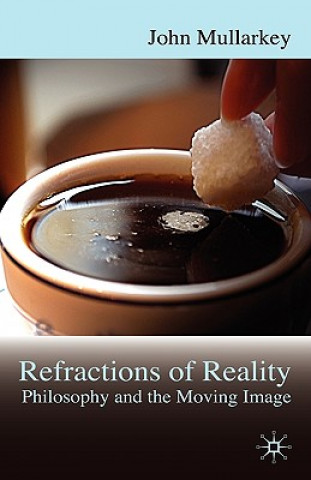
Kód: 04550946
Refractions of Reality: Philosophy and the Moving Image
Autor John Mullarkey
Why is film becoming increasingly important to philosophers? Is it because it can be a helpful tool in teaching philosophy, in illustrating it? Or is it because film can also think for itself, because it can create its own philoso ... celý popis
- Jazyk:
 Angličtina
Angličtina - Vazba: Pevná
- Počet stran: 286
Nakladatelství: PALGRAVE MACMILLAN, 2008
- Více informací o knize

1681 Kč

Skladem u dodavatele v malém množství
Odesíláme za 12-17 dnů
Potřebujete více kusů?Máte-li zájem o více kusů, prověřte, prosím, nejprve dostupnost titulu na naši zákaznické podpoře.
Přidat mezi přání
Mohlo by se vám také líbit
-

The Chinese Takeout Cookbook
675 Kč -

A Bright and Terrible Sword
898 Kč -

ANGELEYES M
330 Kč -

Old Hickory Lake Water Safety Coloring Book
249 Kč -

Die Bucklige Welt
514 Kč -

Kytarová první třída + CD
433 Kč
Darujte tuto knihu ještě dnes
- Objednejte knihu a zvolte Zaslat jako dárek.
- Obratem obdržíte darovací poukaz na knihu, který můžete ihned předat obdarovanému.
- Knihu zašleme na adresu obdarovaného, o nic se nestaráte.
Více informací o knize Refractions of Reality: Philosophy and the Moving Image
Nákupem získáte 168 bodů
 Anotace knihy
Anotace knihy
Why is film becoming increasingly important to philosophers? Is it because it can be a helpful tool in teaching philosophy, in illustrating it? Or is it because film can also think for itself, because it can create its own philosophy? In fact, a popular claim amongst film philosophers is that film is no mere handmaiden to philosophy, that it does more than simply illustrate philosophical texts: rather, film itself can philosophise in direct audio-visual terms. Approaches that purport to grant to film the possibility of being more than illustrative can be found in the subtractive ontology of Alain Badiou, the Wittgensteinian analyses of Stanley Cavell, and the materialist semiotics of Gilles Deleuze. In each case there is a claim that film can think in its own way. Too often, however, when philosophers claim to find indigenous philosophical value in film, it is only on account of refracting it through their own thought: film philosophizes because it accords with a favored kind of extant philosophy. Refractions of Reality: Philosophy and the Moving Image is the first book to examine all the central issues surrounding the vexed relationship between the film image and philosophy. In it, John Mullarkey tackles the work of particular philosophers and theorists (Zizek, Deleuze, Cavell, Bordwell, Badiou, Branigan, Ranciere, Frampton, and many others) as well as general philosophical positions (Analytical and Continental, Cognitivist and Culturalist, Psychoanalytic and Phenomenological). Moreover, he also offers an incisive analysis and explanation of several prominent forms of film theorizing, providing a metalogical account of their mutual advantages and deficiencies that will prove immensely useful to anyone interested in the details of particular theories of film presently circulating, as well as correcting, revising, and revisioning the field of film theory as a whole. Throughout, Mullarkey asks whether the reduction of film to text is unavoidable. In particular: must philosophy (and theory) always transform film into pretexts for illustration? What would it take to imagine how film might itself theorize without reducing it to standard forms of thought and philosophy? Finally, and fundamentally, must we change our definition of philosophy and even of thought itself in order to accommodate the specificities that come with the claim that film can produce philosophical theory? If a 'non-philosophy' like film can think philosophically, what does that imply for orthodox theory and philosophy?
 Parametry knihy
Parametry knihy
Zařazení knihy Knihy v angličtině Humanities Philosophy History of Western philosophy
1681 Kč
- Plný název: Refractions of Reality: Philosophy and the Moving Image
- Autor: John Mullarkey
- Jazyk:
 Angličtina
Angličtina - Vazba: Pevná
- Počet stran: 286
- EAN: 9780230002470
- ISBN: 0230002471
- ID: 04550946
- Nakladatelství: PALGRAVE MACMILLAN
- Hmotnost: 533 g
- Rozměry: 216 × 140 × 23 mm
- Datum vydání: 11. December 2008
Oblíbené z jiného soudku
-

Meditations
245 Kč -

The Myth of Sisyphus
169 Kč -

Why I Am so Clever
91 Kč -

Meditations
410 Kč -

Republic
279 Kč -

Beyond Good and Evil
258 Kč -

Gay Science
316 Kč -

Aphorisms on Love and Hate
90 Kč -
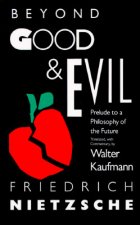
Beyond Good & Evil
322 Kč -

Meditations on First Philosophy
253 Kč -
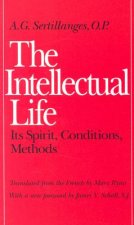
Intellectual Life
454 Kč -

Socrates' Defence
90 Kč -

Discourses, Fragments, Handbook
306 Kč -

Ride the Tiger
493 Kč -

Thus Spoke Zarathustra
276 Kč -

Fear and Trembling
276 Kč -

Birth of Tragedy
90 Kč -
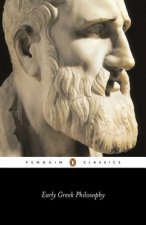
Early Greek Philosophy
357 Kč -

Groundwork for the Metaphysics of Morals
286 Kč -

Gorgias
232 Kč -
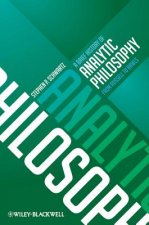
Brief History of Analytic Philosophy - From Russell to Rawls
955 Kč -

On Duties
322 Kč -

Discourses and Selected Writings
306 Kč -

Nicomachean Ethics
136 Kč -

Nausea
276 Kč -

Letters from a Stoic
276 Kč -

Meditations
502 Kč -

Simulacra and Simulation
416 Kč -

Phenomenology of Spirit
551 Kč -

Twilight of the Idols with The Antichrist and Ecce Homo
136 Kč -

On Liberty, Utilitarianism and Other Essays
250 Kč -
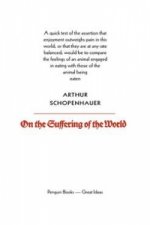
On the Suffering of the World
196 Kč -

Human Condition
511 Kč -

On the Shortness of Life
223 Kč -

Existentialism Is a Humanism
213 Kč -

Think
324 Kč -

Guide to the Good Life
434 Kč -

How To Be A Stoic
431 Kč -

The Symposium
233 Kč -

Human, All Too Human & Beyond Good and Evil
131 Kč -

At The Existentialist Cafe
358 Kč -

Undiscovered Self
708 Kč -

Passions of the Soul and Other Late Philosophical Writings
303 Kč -

The Trouble With Being Born
306 Kč -

Leviathan
136 Kč -

City of God
454 Kč -

Ecce Homo
250 Kč -

Enneads
381 Kč -

On Friendship
196 Kč
Osobní odběr Praha, Brno a 12903 dalších
Copyright ©2008-24 nejlevnejsi-knihy.cz Všechna práva vyhrazenaSoukromíCookies


 Vrácení do měsíce
Vrácení do měsíce 571 999 099 (8-15.30h)
571 999 099 (8-15.30h)